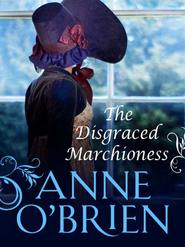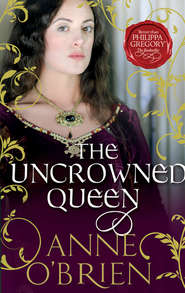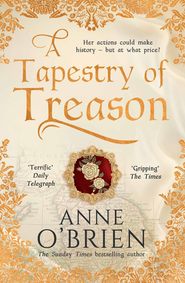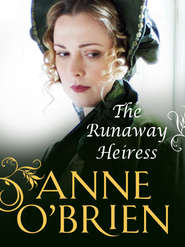По всем вопросам обращайтесь на: info@litportal.ru
(©) 2003-2025.
✖
The Enigmatic Rake
Настройки чтения
Размер шрифта
Высота строк
Поля
Not at first glance an attractive girl, yet Sarah thought that one day she would be lovely in a dramatic fashion. Her perfect oval face had excellent bone structure, promising high cheekbones and a straight nose. Her skin had the translucence of rippling stream water, and her hair shone as dark silk. When released from its braid, it might even curl. Now she faced her father in the library, quietly obedient, with nothing to say for herself. She acknowledged Sarah as instructed, but did not raise her eyes above the hem of the lady’s skirts.
Lord Faringdon appeared to be somewhat baffled by this small contained person as he attempted to draw her out, in the interest of Mrs Russell getting to know her new pupil. Did you have a pet in Richmond? Do you like to ride? What do you like doing when not at your lessons? Which lessons do you enjoy best? Finally he gave up after a string of monosyllabic and un-informative answers, and addressed his comments instead to Mrs Watton.
‘I trust that you will be happy here, Mrs Watton. I owe you much for the care of my daughter. Mrs Russell will be in charge of your comfort here …’ Again it seemed that his quick glance at Sarah held almost a hint of desperation. Celestine remained distant and silent as her father outlined his arrangements for her, standing straight and prim, hands folded before her, in a dark dress, ruched and beribboned in a manner far too old and sophisticated for her slight figure.
The uncomfortable episode was brought quickly to an end, and Celestine was sent off with Sarah, who readily imagined the sigh of relief behind her. They climbed the staircase side by side.
‘I will show you to your room, Celestine. And the room where we shall take most of the lessons.’
‘Yes.’
Sarah opened the door and ushered the child in. ‘Here is your room.’
It was a pretty room, light and airy, where efforts had been made to furnish it suitably for a young girl with floral patterns in shades of pale green and primrose and with frivolously frilled curtains on the half-tester bed. Celestine walked round, taking her time, to touch the curtains and the soft cushions on the window seat, to run her fingers along the edge of the little inlaid dressing table. To inspect the paintings on the walls.
‘Do you like it?’
‘Yes.’
‘Perhaps not as comfortable as your room in Richmond.’ Sarah had no idea, simply wishing to persuade the girl to talk. ‘It will soon look like home when you have your own possessions unpacked.’
‘It is very nice.’
‘Tomorrow we shall begin your lessons and see what you can do. But today it is enough for you to settle in. It must all seem very new and strange.’
‘Of course.’
‘Come then, Celestine. I am sure you are hungry after your journey.’ Sarah was turning to leave when Celestine at last ventured an opinion. But not one expected by Sarah.
‘My father does not want me here, you know. He does not like me.’
Sarah angled her head to watch the girl who still stood before the window, looking out at the vista of sky and clouds, hands clasped behind her back and giving the air of a prisoner in a locked room. Why would the child make such an extravagant claim? She tried to keep her expression and her tone light and calm.
‘But why do you say that? Who told you such a thing?’
‘He has never wanted me with him before. Neither did my mother.’
Sarah tried to hide her astonishment, a little unnerved by the cool acceptance of the situation, if it were indeed so, the flat statement of what might very well be true, given Sarah’s knowledge of this troubled household and the child’s solitary upbringing.
‘Do you miss your mama?’
‘No—not really. She was not often in England. I barely remember her.’
‘Did you not live in Paris?’
‘When I was a baby. I do not remember. I have visited since then—but not for long.’
‘I am sure that your father is very pleased to have you here.’ Sarah tried for a reassurance she did not feel. ‘It was his idea that you should join him, after all. And that I should be here to care for you.’
‘Perhaps.’ Celestine made no further reply, as if the truth were clear enough without any clarification from herself.
‘Come and have tea.’ Sarah encouraged the girl through a connecting door into the schoolroom and then on to the door into Sarah’s sitting room, where a table was laid for tea. As Sarah opened the door John burst through it from the outer corridor, hair tousled, eyes shining, cheeks pink with effort.
‘There are even more horses in the stable now, Mama—but not as fine as Lord Faringdon’s. And a coach—’ He slid to a halt, chest heaving.
The two children sized each other up.
‘This is Celestine who has arrived at last. This is my son, John.’
‘Hello.’ John grinned. ‘Why did it take you so long, Cel—Celst …?’ He blushed in some confusion, but was in no way embarrassed. ‘I cannot say it! I do not know anyone called that.’
Sarah chuckled as she reached to draw her son to a halt at her side. ‘I think he finds your name difficult,’ she explained to the formal young lady.
‘It is French.’
‘I know. And very elegant. But John is younger than you and has not met French names before.’
It seemed for a moment as if Celestine might sneer at such childishness, but then said, ‘I have never met a boy your age before. How old are you?’
‘Nearly six.’ John eyed her warily.
‘I have had my eighth birthday. I shall soon be nine.’ The dark eyes watched, weighing up the boy, coming to a decision. ‘I have another name.’
‘And what is that?’ Sarah asked.
‘Elizabeth.’
‘We could call you Elizabeth,’ Sarah ventured, ‘if you did not object.’
Celestine flushed a little, her colourless skin warming to a hint of prettiness. ‘I think I would like to be called Beth. No one has ever called me that. Can you call me Beth, John?’
‘Of course I can! I have been waiting for you for so long, Beth. I have been lonely here with no one to play with. Are you hungry? I am. Mrs Beddows has made a cake for us. Come and see.’
Sarah watched the outcome with interest. Celestine—Beth!—hesitated, but only for a moment. Then stepped out to take John’s hand with all the condescension of her three years’ maturity.
‘Yes. I am hungry. I would like you to show me the cake.’
They sat down at the table, John explaining that after tea he would show Beth his own room and then …
Sarah allowed a silent sigh of relief as she noted the surprisingly tolerant expression on Beth’s face. The way she listened as John prattled on, waving his arms about with typical enthusiasm. The girl took little part in the conversation, but nodded when John looked to her for confirmation of some trivial matter. Well! If Miss Faringdon saw herself in a maternal role toward John, it might just be the means to get this frighteningly composed young lady to settle into the household. As for her relationship with her father—Sarah had no idea. The child felt unloved and unwanted, of which sins Lord Faringdon might very well be guilty for all she knew. One more transgression to lay against his soul if he could be so cruel as to neglect his own child. Yet Sarah found herself hoping that it was not so, for how could she have fallen headlong and ridiculously into love with a man she did not know, one with a contemptuous reputation and who could be so needlessly heartless to his daughter?
But that was a matter for the future, she decided as she allowed the children to leave the table. Enough that today Beth was here and was not averse to her new home.
Chapter Four
In the following days Sarah could convince herself that it would be an easy matter to keep a distance from Lord Faringdon. The only immediate ripple on the tranquillity of her pool was a note from Judith, hoping that Sarah would be able to find the time to visit for tea in Grosvenor Square. Sarah did not comply, but penned a brief apology, citing pressure of work since Lord Faringdon was now in residence. She knew that she had made the friendship well nigh impossible by her stepping across the social divide. It hurt, but she had deliberately made the decision and must not, therefore, dwell on any regrets. Judith would realise and accept—she was not so naïve as to be ignorant or careless of the situation. In private, Sarah shed a few self-pitying tears.
Her energies were soon directed towards other matters, not least diplomatic negotiations between a number of strong-willed and self-important individuals. Lord Faringdon’s valet, a severe gentleman, was not given to personal chatter, but would hear nothing wrong of his employer, quick to depress any slighting comment with a stern frown and biting words. The Countess of Wexford’s maid, Hortense, was very different—a superior little madam, French, of course, who kept herself to herself, yet demanded the best of everything for herself and for her mistress. Celestine’s nurse, Mrs Watton, was a comfortable old body who did not regret in the slightest passing authority over her charge to Sarah. The child took too much after her mother. Not that they had seen a great deal of Marianne Faringdon before her untimely death. But even so! Blood would always out.











